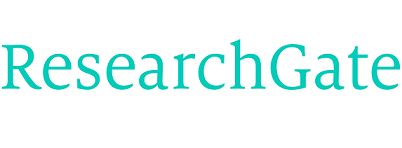Vol 5 Issue 1 January 2018-April 2018
Halima Ali Ahmed, Dr. Fridah Simba
Abstract:Somalia faces many major corruption challenges that affect conflict-torn countries, with widespread corruption and a deeply deep-rooted patronage system damaging the legitimacy of the internationally recognized Federal Government. Corruption distorts resource allocation and government performance. The causes of its development are many and vary from one country to the next, Among the contributing factors are policies, programs and activities that are poorly conceived and managed, failing institutions, poverty, income disparities, inadequate civil servants’ remuneration, lack of accountability and transparency. Combating corruption is instrumental to the broader goal of achieving more effective, fair, and efficient government. When there is inadequate transparency, accountability, and probity in the use of public resources, the state fails to generate credibility and authority. Systemic corruption undermines the credibility of democratic institutions and counteracts good governance. The negative impacts of corruption have served as the impetus for international aid institutions to demand the establishment of good governance strategies in Somalia. These strategies attempt to improve integrity, transparency, and accountability in government and private administrative transactions, to achieve sustainable growth and improved service delivery to the public. Transparency, combined with the empowerment of the civil society, helps governments ensure the efficient use of resources and manage a change process that results in increased accountability and improved service delivery, two elements that assist in the creation of an enabling environment for private-sector development and economic growth. It is due to the pressure from international aid institutions to Somalia to create good governance strategies in order to reduce corruption that the study aimed at investigating the good governance strategies that the local government can embrace in reducing corruption in the local government of Somalia. The study was guided by four objectives including, determining the role of accountability in reducing corruption in Local government of Somalia, to find out the role of transparency in reducing corruption in local government in Somalia, to investigate the effect of equitable governance on corruption reduction in local government in Somalia and to assess the role of technology deployment in corruption reduction in local government in Somalia. The researcher used a survey design method for the study. Survey design is a design in which data is collected using questionnaires. For this study, the survey design was preferred because surveys are relatively less costly, easily accessible and also useful in describing the characteristics of a large population and making the results statistically significant even when analyzing the variables. The study selected a sample of 171 respondents from the different segments of the population in Mogadishu Somalia to determine the role of governance strategies to reduce corruption in Somalia. The data collected was tabulated and analyzed. This study employed simple random sampling technique in selecting respondents. This type of sampling is none biased because each member of the subset has an equal probability of being chosen. From the study data analysis and interpretations, the following summary, conclusions and recommendations were drawn; Accountability, transparency, equitable governance and technology deployment were found to play a big role in combating and reducing corruption in local government in Somalia. Thus the Somalia local government should encourage the use of accountability practices, transparency practices, equitable governance actions and the deployment of technology in local government across the country so as to fight corruption.
Keywords:income disparities, civil society, corruption reduction, government performance.
Title:ROLE OF GOVERNANCE STRATEGIES ON CORRUPTION REDUCTION IN SOMALIA
Author:Halima Ali Ahmed, Dr. Fridah Simba
ISSN 2394-7322
International Journal of Novel Research in Marketing Management and Economics
Novelty Journals






